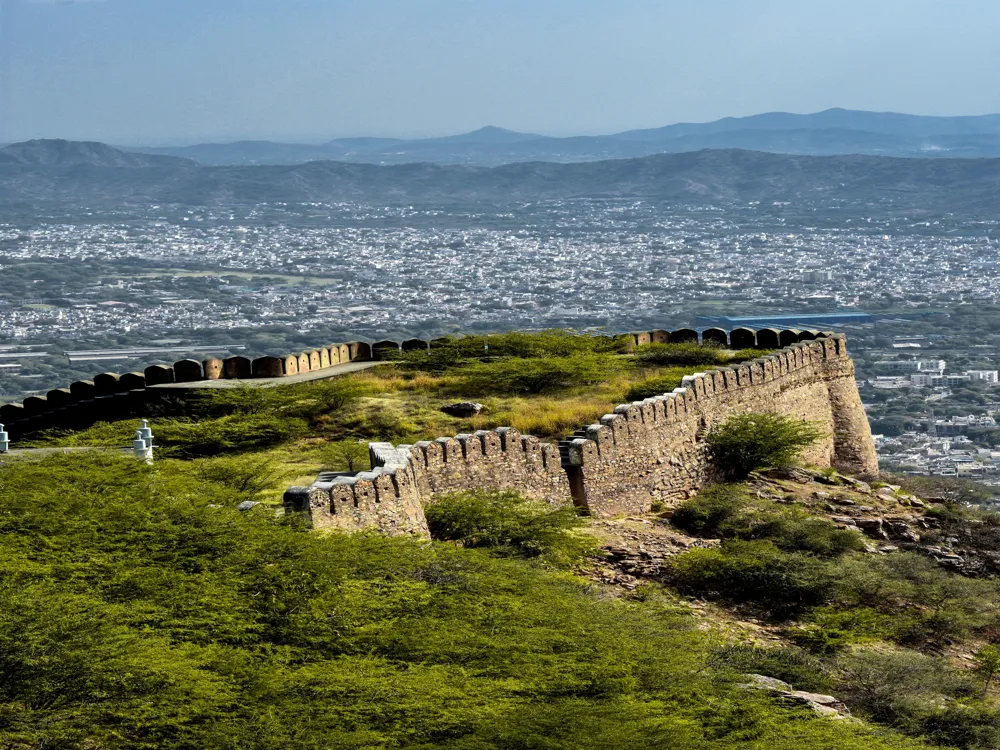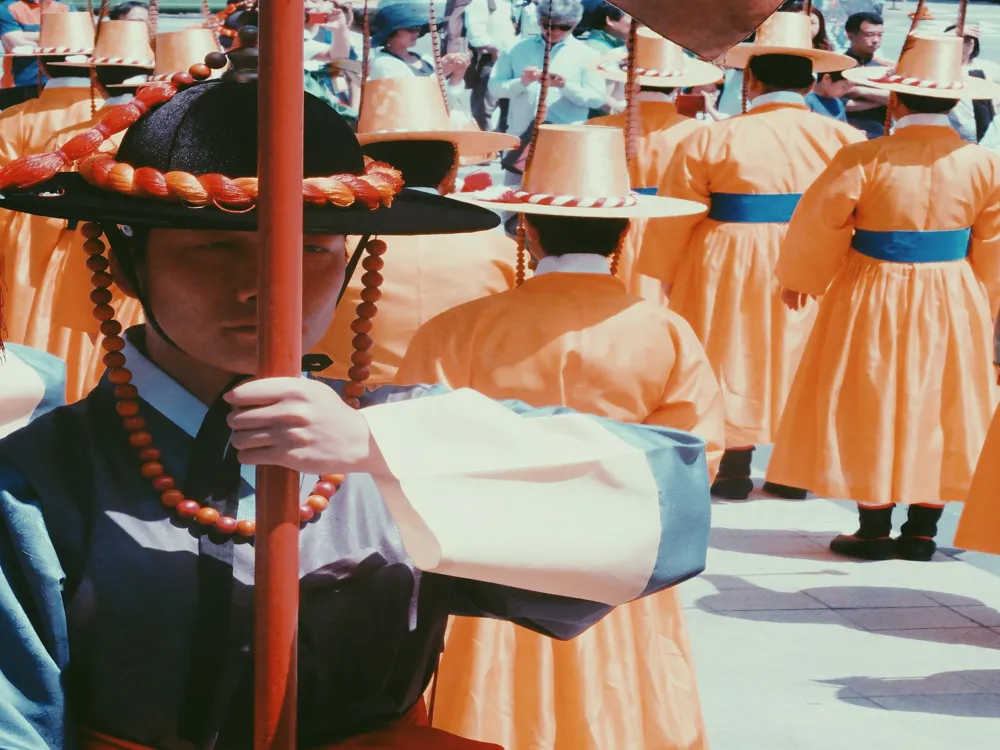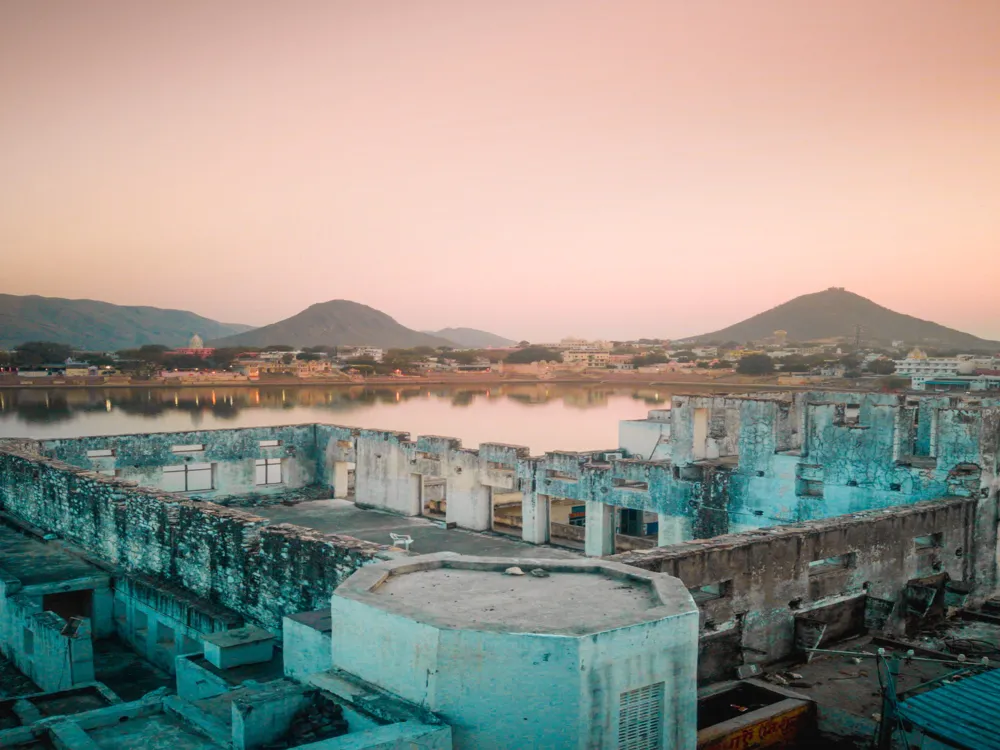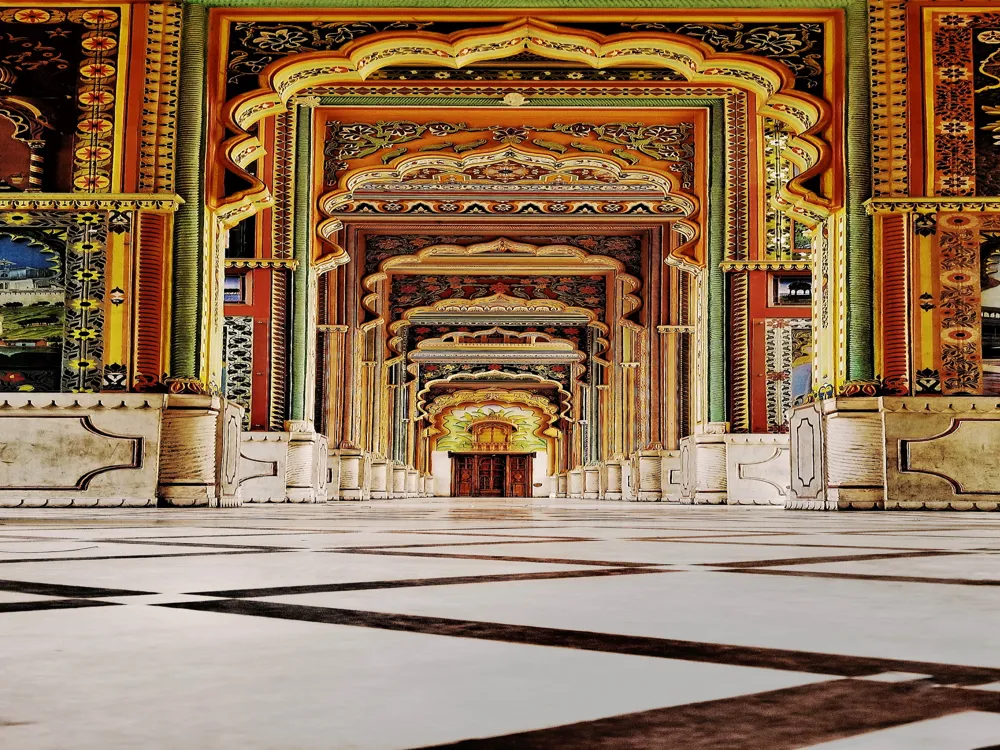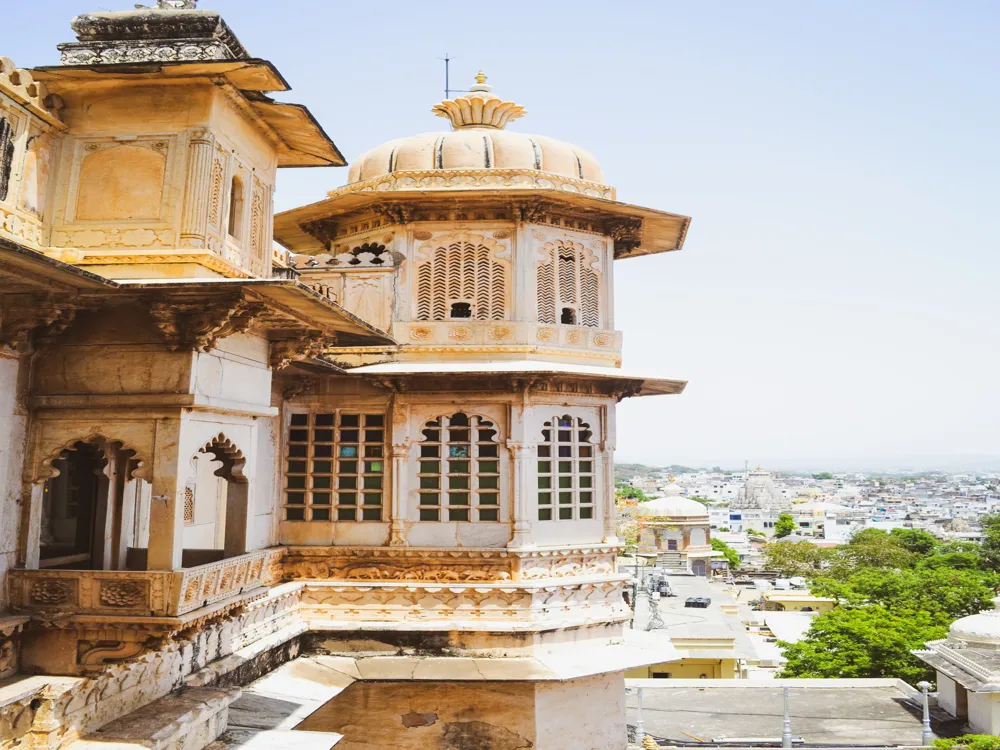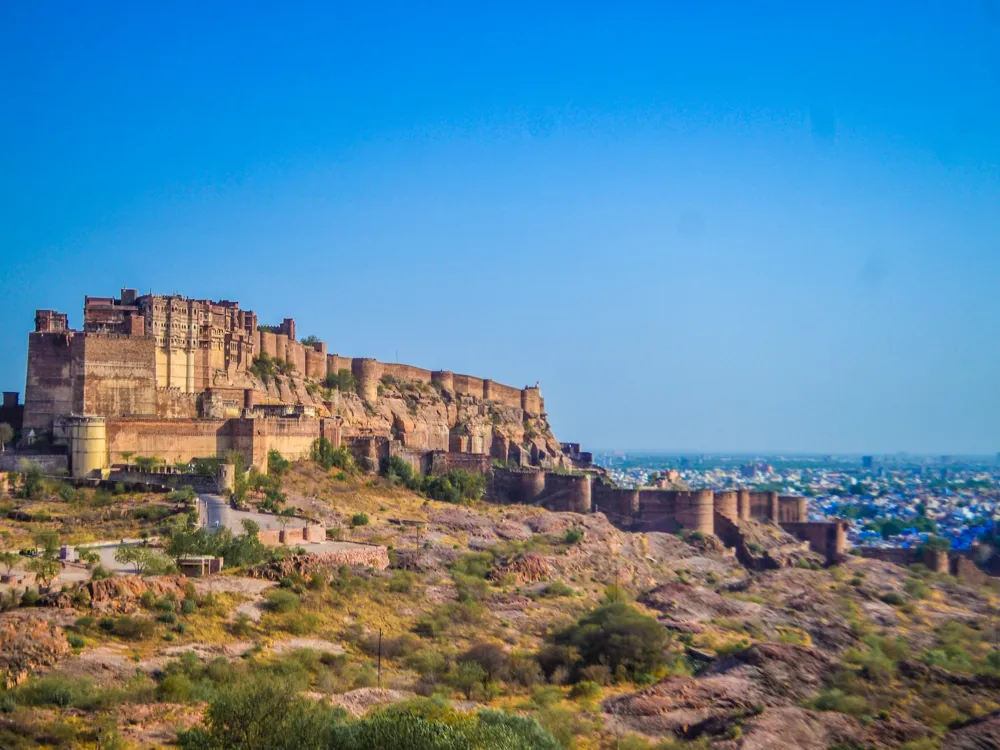The Ajmer Sharif Dargah, located in the heart of Ajmer, Rajasthan, is a revered shrine and a symbol of unity and peace. This sacred site is the resting place of the Sufi saint, Khwaja Moinuddin Chishti, who was known for his message of love and harmony. Every year, millions of pilgrims from different faiths visit the dargah to seek blessings and experience its spiritual ambiance. The history of the Ajmer Sharif Dargah dates back to the 13th century and is deeply rooted in Sufi traditions. Khwaja Moinuddin Chishti arrived in Ajmer from Persia in 1192 and devoted his life to helping the poor and downtrodden. His teachings and principles attracted followers from all walks of life, and his dargah became a symbol of hope and spirituality. The atmosphere at Ajmer Sharif Dargah is one of profound spirituality and tranquility. The complex is always filled with the sounds of qawwalis (Sufi devotional music) and the fragrance of rose petals and incense sticks. The annual Urs festival, commemorating the saint's death anniversary, is a time of great celebration and attracts pilgrims from across the globe. Visitors to the dargah are greeted with a majestic gateway, which opens into a courtyard surrounded by magnificent Mughal architecture. The main shrine, where the saint's tomb lies, is adorned with a gold-plated dome and marble screens. The serene environment of the dargah provides a unique experience that leaves a lasting impression on visitors. The Ajmer Sharif Dargah is not just a religious site but also a cultural and historical landmark. It represents the syncretic traditions of India, where different religions and cultures converge in harmony. The dargah's message of love and compassion continues to inspire people around the world, making it a must-visit destination for anyone seeking spiritual enlightenment. The architecture of the Ajmer Sharif Dargah is a splendid example of Mughal and Indo-Islamic design, reflecting the rich cultural heritage of India. The complex comprises several structures, including the main tomb, courtyards, gateways, and prayer areas, each showcasing exquisite craftsmanship. The main gate, known as the Nizam Gate, was built in the early 20th century and is an imposing structure that leads to the inner courtyard. The gate is adorned with intricate carvings and calligraphy, setting the tone for the architectural marvels inside. The second gate, Shahjahani Gate, constructed by Emperor Shah Jahan, leads to the main tomb. This gate is an example of Mughal architecture at its finest, with elaborate designs and a majestic presence. The gate's grandeur is a prelude to the beauty that lies within. The main attraction of the dargah is the tomb of Khwaja Moinuddin Chishti, which is an architectural masterpiece. The tomb is surrounded by a silver railing and a marble screen, with the actual grave lying beneath a gold-plated dome. The intricate marble work, gold plating, and artistic calligraphy on the dome are a testament to the skilled craftsmanship of the artisans. Surrounding the main tomb are several other structures, including mosques, courtyards, and living areas for the caretakers of the shrine. The entire complex is a harmonious blend of various architectural styles, with each structure complementing the others. The architecture of Ajmer Sharif Dargah is not just about its physical beauty but also symbolizes the inclusive and diverse nature of Indian culture. The dargah, with its majestic structures, stands as a beacon of hope, love, and unity, embodying the spirit of Sufism and the essence of India's pluralistic ethos. Visitors are advised to dress modestly, covering shoulders and legs, as a sign of respect for the religious nature of the site. While photography is allowed in some areas, it is prohibited inside the main mausoleum. Always ask for permission before taking photos of people or sacred spaces. Be mindful of the religious and cultural sentiments of the devotees. It's important to maintain a quiet and respectful demeanor while inside the dargah. Donating to the dargah is optional. Be wary of touts and give contributions only at official donation counters if you wish to donate. Footwear must be removed before entering the main shrine area. There are facilities available for safekeeping of shoes. Ajmer Sharif Dargah is easily accessible from various parts of India. The nearest airport is Kishangarh Airport, about 30 km from Ajmer. Regular flights connect Ajmer with major cities like Delhi, Mumbai, and Kolkata. Ajmer is also well-connected by train. The Ajmer Junction railway station is a major stop for several trains from different parts of the country. From the station, the dargah is a short ride away by taxi or auto-rickshaw. For those traveling by road, Ajmer is connected with a network of national and state highways. Regular bus services are available from major cities like Delhi, Jaipur, and Jodhpur to Ajmer. Once in Ajmer, visitors can easily find local transportation to reach the Ajmer Sharif Dargah. The dargah is located in the city center and is accessible by auto-rickshaws, taxis, or even on foot from nearby areas. Read More:Overview of Ajmer Sharif Dargah, Ajmer, Rajasthan
Architecture of Ajmer Sharif Dargah
Tips When Visiting Ajmer Sharif Dargah
Respectful Attire
Photography Guidelines
Cultural Sensitivity
Donations
Footwear Guidelines
How to Reach Ajmer Sharif Dargah
Ajmer Sharif Dargah
Ajmer
Rajasthan
₹ 9,000 onwards
View ajmer Packages
Weather :
Label : Must Visit
Tags : Monument
Timings :
Winters: 6:00 AM - 9:00 PM,
Summers: 5:00 AM - 8:45 PM
Closed for Khidmat: 2:50 PM to 4:00 PM; on Thursdays, 2:20 PM to 3:30 PM
Time Required : 2 to 3 hours
Entry Fees : No Entry Fee
Dress Code : Head Covered. Modestly Covered Attire.
Established in : 1236 (AD)
Constructed By : Muhammad bin Tughluq
Nearest Bus Stand : Ajmer Sharif Dargah Bus Stand (Diggi Bazaar)
Planning a Trip? Ask Your Question
Also Refered As:
Tomb of Moinuddin Chishti
Ajmer Travel Packages
View All Packages For Ajmer
Top Hotel Collections for Ajmer

Private Pool

Luxury Hotels

5-Star Hotels

Pet Friendly
Top Hotels Near Ajmer
Other Top Ranking Places In Ajmer
View All Places To Visit In ajmer
Faq on Ajmer
What is Ajmer Sharif Dargah Ajmer?
Ajmer Sharif Dargah is a Sufi shrine dedicated to the Sufi saint Moinuddin Chishti located in Ajmer, Rajasthan, India.
Who was Moinuddin Chishti?
Moinuddin Chishti was a revered Sufi saint and spiritual leader who lived in the 12th and 13th centuries. He is widely known for his teachings of love, peace, and harmony.
Why is Ajmer Sharif Dargah famous?
Ajmer Sharif Dargah is famous for being the burial place of Moinuddin Chishti and for its significance as a pilgrimage
How old is Ajmer Sharif Dargah?
The exact age of Ajmer Sharif Dargah is not known, but it dates back several centuries and has been an important religious site for both Muslims and non-Muslims for a long time.
What is the significance of visiting Ajmer Sharif Dargah?
Visiting Ajmer Sharif Dargah is believed to bring spiritual blessings, peace, and fulfillment of desires. Many people visit the shrine seeking divine intervention in their lives and to offer prayers.
View ajmer Packages
Weather :
Label : Must Visit
Tags : Monument
Timings :
Winters: 6:00 AM - 9:00 PM,
Summers: 5:00 AM - 8:45 PM
Closed for Khidmat: 2:50 PM to 4:00 PM; on Thursdays, 2:20 PM to 3:30 PM
Time Required : 2 to 3 hours
Entry Fees : No Entry Fee
Dress Code : Head Covered. Modestly Covered Attire.
Established in : 1236 (AD)
Constructed By : Muhammad bin Tughluq
Nearest Bus Stand : Ajmer Sharif Dargah Bus Stand (Diggi Bazaar)
Planning a Trip? Ask Your Question
Tomb of Moinuddin Chishti
Ajmer Travel Packages
View All Packages For Ajmer
Top Hotel Collections for Ajmer

Private Pool

Luxury Hotels

5-Star Hotels

Pet Friendly
Top Hotels Near Ajmer
Other Top Ranking Places In Ajmer
Faq on Ajmer
What is Ajmer Sharif Dargah Ajmer?
Ajmer Sharif Dargah is a Sufi shrine dedicated to the Sufi saint Moinuddin Chishti located in Ajmer, Rajasthan, India.
Who was Moinuddin Chishti?
Moinuddin Chishti was a revered Sufi saint and spiritual leader who lived in the 12th and 13th centuries. He is widely known for his teachings of love, peace, and harmony.
Why is Ajmer Sharif Dargah famous?
Ajmer Sharif Dargah is famous for being the burial place of Moinuddin Chishti and for its significance as a pilgrimage
How old is Ajmer Sharif Dargah?
The exact age of Ajmer Sharif Dargah is not known, but it dates back several centuries and has been an important religious site for both Muslims and non-Muslims for a long time.
What is the significance of visiting Ajmer Sharif Dargah?
Visiting Ajmer Sharif Dargah is believed to bring spiritual blessings, peace, and fulfillment of desires. Many people visit the shrine seeking divine intervention in their lives and to offer prayers.








